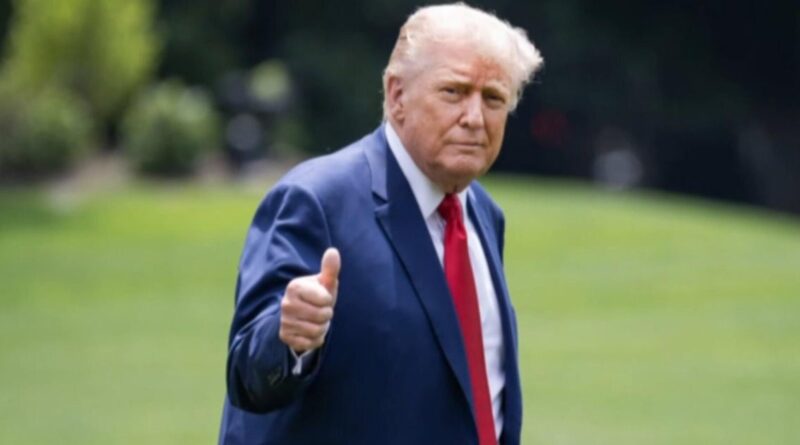U.S. Steel-Nippon deal includes “golden share” giving Trump power to approve big corporate changes
President Trump’s executive order on Friday clearing the way for Japan-based Nippon Steel to potentially buy U.S. Steel comes with an unusual corporate twist called a “golden share.”
As part of the agreement, Mr. Trump will gain power to approve a number of major corporate decisions for the company, signaling that the president could potentially block the company from relocating U.S. Steel’s headquarters from Pittsburgh, or transferring or relocating jobs outside the U.S.
The details of the golden share were disclosed by Commerce Secretary Howard Lutnick on Saturday in a social media post, where he described the agreement as including “powerful terms that directly benefit and protect America, Pennsylvania, the great steelworkers of U.S. Steel and U.S. manufacturers that will have massively expanded access to domestically produced steel.”
What is a golden share?
A “golden share” refers to special rights held by a government over a corporate entity. They are typically granted in relation to newly privatized businesses over which the government wants to maintain some control, according to legal research company Westlaw.
Golden shares have been employed in countries ranging from the U.K. to China, although they are rare in the U.S. In the former case, the U.K. government held a golden share in the British Airports Authority, although it was ruled illegal by a court in 2003. In the latter, the Communist Party had taken a percentage ownership in private companies as well as control over government board seats and voting power, the Wall Street Journal reported in 2023.
While presidents can indirectly influence corporate decisions through agencies such as the Federal Trade Commission, which reviews mergers for antitrust concerns, it’s unusual for a commander-in-chief to exercise the level of control outlined by Lutnick regarding U.S. Steel. According to his post, U.S. Steel — which would keep its name and headquarters after the merger — also wouldn’t be allowed to change its name from U.S. Steel without President Trump’s approval.
The president has the authority to name one of the corporate board’s independent three directors and can veto the other two choices, the Associated Press reported, citing a person familiar with the terms of the agreement who insisted on anonymity to discuss them. The details of the board structure were first reported by The New York Times.
“The Art of the Deal,” Lutnick wrote of the agreement, referencing Mr. Trump’s best-selling book about his business skills and negotiating techniques.
Terms remain unclear
Lutnick described the golden share in the U.S. Steel deal as “perpetual.” The Commerce Department didn’t return a request for clarification on if the golden share would transfer to subsequent presidents after Mr. Trump leaves office.
The full terms also remain somewhat unclear. The companies have not made public the full terms of Nippon Steel’s acquisition of U.S. Steel nor the national security agreement with the federal government.
On Friday, the two companies announced in a joint statement that they had agreed to the terms of the government’s national security agreement. They added the terms mandate $11 billion in new investments by 2028 and provides for “a Golden Share to be issued to the U.S. Government.”
The U.S. Steelworkers union told CBS MoneyWatch that it can’t comment on the golden shares without seeing more information about the agreement. But it pointed to a June 15 statement that expressed the union’s disappointment with the president’s decision to move forward with the merger.
“Details matter: Neither the government nor the companies have publicly identified what all the terms of the proposed transaction are,” the union letter said. “And, while there is a claimed ‘golden share,’ what can we expect from Nippon’s leadership in Japan which continues to build up overcapacity in steel globally and has been charged again with dumping by the Department of Commerce just weeks ago?”
contributed to this report.





